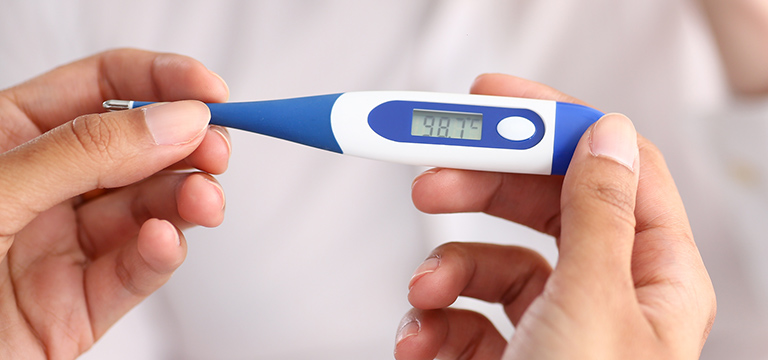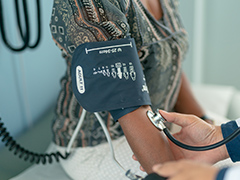What Is Normal Body Temperature Range?

Your body is a well-oiled machine. In order to run properly, it needs to put out heat at all times. This heat is produced by your body doing all the work and performing all the functions that keep you alive. When it’s putting out too much or too little heat, that can signal a problem. Here are the ranges you should pay attention to.
Normal range
There isn’t one perfect temperature for everyone. You might be a degree different from the person next to you. A study in JAMA: the Journal of American Medical Association, says that the baseline for most people is 98.2 degrees Fahrenheit.
A typical adult’s body temperature is anywhere from 97°F - 99°F.
Babies and children are 97.9°F - 100.4°F.
Your temperature will vary throughout the day as well as your lifetime. Things like physical activity, time of day, age and diet can all affect your temperature.
High range
A temperature higher than the norm of 100.4°F is considered a fever. You might not feel your best, but a fever is a sign that your body is doing what it should when germs are on the scene. It’s trying to fight them off. When your temperature hits 103°F or higher or if you’ve had a fever for several days, you should call your doctor. Associated symptoms like headache, chest pain or vomiting are also signs that you need to speak to a healthcare provider.
Low range
When your body loses too much heat, it’s serious business. Hypothermia is technically when your body temp drops below 95°F. It can happen indoors as well as outdoors. Some things that can make you more likely to get hypothermia are:
- Alcohol or drug use
- Underactive thyroid
- Anorexia
- Stroke
- Sepsis
- Malnutrition
- Some medicines (antidepressants or sedatives)
- Nerve damage
Babies and older adults can struggle with regulating their temperature. Babies can lose heat quickly, so it’s important to keep them at a temp above 97°F. The same goes for the elderly.
If your body temperature starts to fall outside normal range, you can use telehealth services to speak with a doctor.
Source: https://www.webmd.com/first-aid/normal-body-temperature#1
Source: https://jamanetwork.com/journals/jama/article-abstract/400116 (abstract is available, full study is behind paywall)


